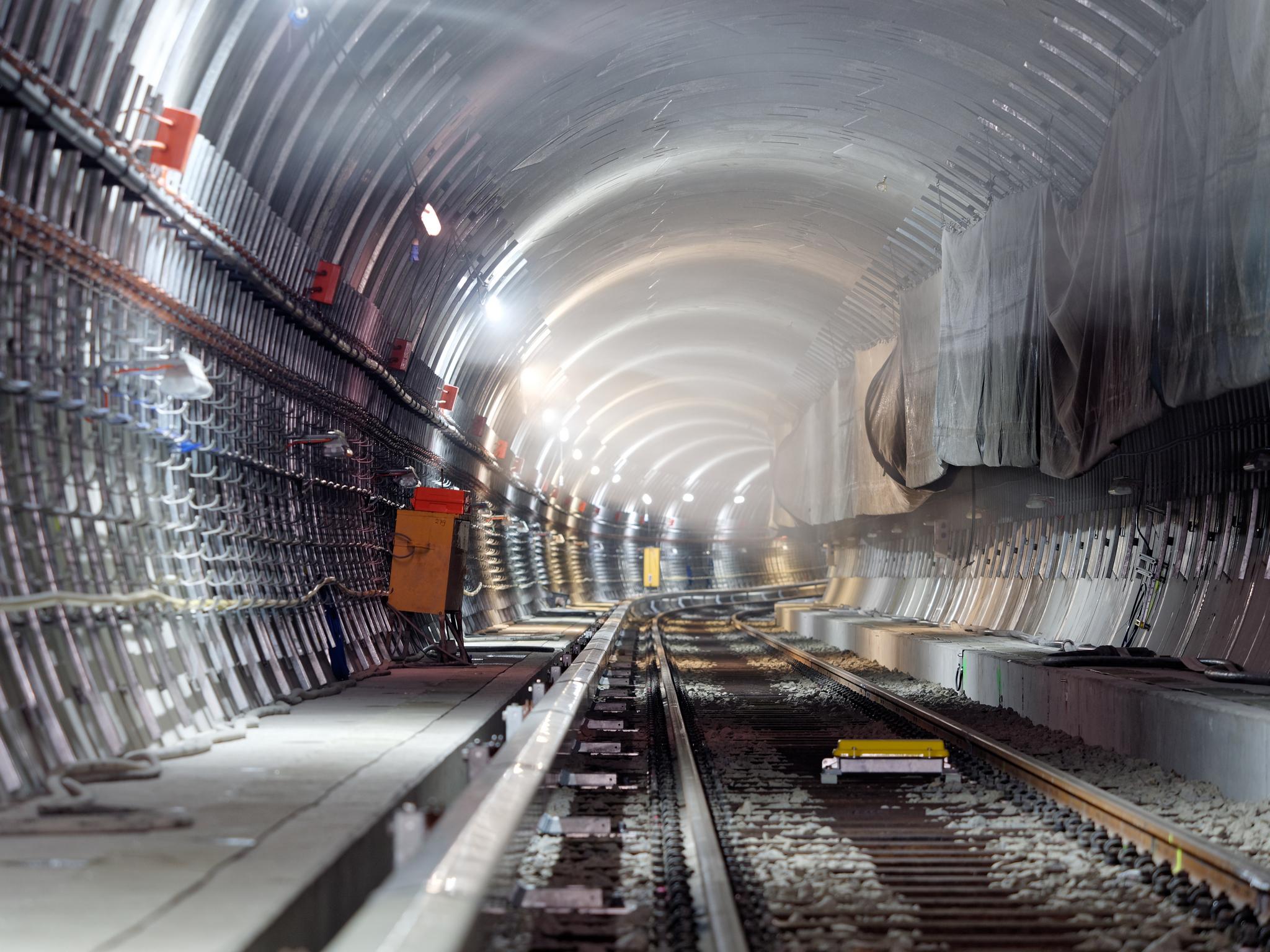Thessaloniki gets ready for its metro launch in November
The underground rapid transit lines have been under construction for almost two decades due to various project delays
 TheMayor.EU logo
TheMayor.EU logo 
Museumsinsel station was based on a set design for "The Magic Flute", Source: Oliver Lang / BVG via City of Berlin
The Museums Island station is based on Karl Friedrich Schinkel's set of “The Magic Flute”
On 9 July the Museumsinsel station will open in Berlin. The station’s design was inspired by the surrounding buildings built by the Prussian architect Karl Friedrich Schinkel and his set designs for Mozart's opera “The Magic Flute”. The architect – Prof. Max Dudler planned the station with a vaulted ceiling in dark blue with 7200 LED lights mimicking a starry sky.
The Museum Island Station will connect the rest of the city of Berlin with Museum Island, where the city’s most famous museums are located. Some of these are the Bode Museum of sculpture and Byzantine art near the river and Pergamonmuseum, with exhibits from ancient Rome, Greece and Babylon.
“With the train station, the World Cultural Heritage Museum Island will have a worthy new entrance and our city will have another tourist attraction," said Eva Kreienkamp, the boss of BVG, the company that built the station.
In the heart of Berlin, nestled between the Spree River and Spree Canal, one finds the world-famous Museum Island visited by millions of people every year. Now the new station will serve as a gateway to the cultural life of Berlin and this is why it was built with the idea to be a cultural landmark itself.
After ten years of construction, the two-kilometre extension of the U5 line went into operation back in December, except for this station. The company put the cost of the new line at 540 million euros.
 The tunnel under the Spee River. Source: BVG / A. Reetz-Graudenz
The tunnel under the Spee River. Source: BVG / A. Reetz-Graudenz
After an uncertain schedule and a few delays, the Museumsinsel station will close the gap of the U5 and serve as a tourist gateway to the centre of Berlin.
The shaky schedule was due to the fact that the construction process was particularly difficult, as the tunnel runs under some old and grandiose buildings as well as under the river and the canal.
Its construction involved a method called ground freezing, where the ground needs to be stabilised to prevent tunnel collapses during excavations.
There is still some work to be done on the surface of the station, but this will not affect train traffic and passengers.
If you want to keep up with how European cities and regions are changing, follow us on Facebook, Twitter and Instagram.

The underground rapid transit lines have been under construction for almost two decades due to various project delays

Now you can get your wine in Talence by paying directly in Bitcoin

That’s because the state has to spend money on updating the railway infrastructure rather than subsidizing the cost of the popular pass

Rethinking renewable energy sources for the urban landscape

The examples, compiled by Beyond Fossil Fuels, can inform and inspire communities and entrepreneurs that still feel trepidation at the prospect of energy transition

Now you can get your wine in Talence by paying directly in Bitcoin

The 10th European Conference on Sustainable Cities and Towns (ESCT) sets the stage for stronger cooperation between the EU, national and local level to fast track Europe's transition to climate neutrality.

At least, that’s the promise made by the mayor of Paris, Anne Hidalgo

The underground rapid transit lines have been under construction for almost two decades due to various project delays

At least, that’s the promise made by the mayor of Paris, Anne Hidalgo

Hostal de Pinós is located in the geographical centre of the autonomous region

Despite its church-y name, the district has long been known as the hangout spot for the artsy crowds

Urban dwellers across the EU are having a say in making their surroundings friendlier to people and the environment.

Forests in the EU can help green the European construction industry and bolster a continent-wide push for architectural improvements.

Apply by 10 November and do your part for the transformation of European public spaces

An interview with the Mayor of a Polish city that seeks to reinvent itself

An interview with the newly elected ICLEI President and Mayor of Malmö

A conversation with the Mayor of Lisbon about the spirit and dimensions of innovation present in the Portuguese capital














